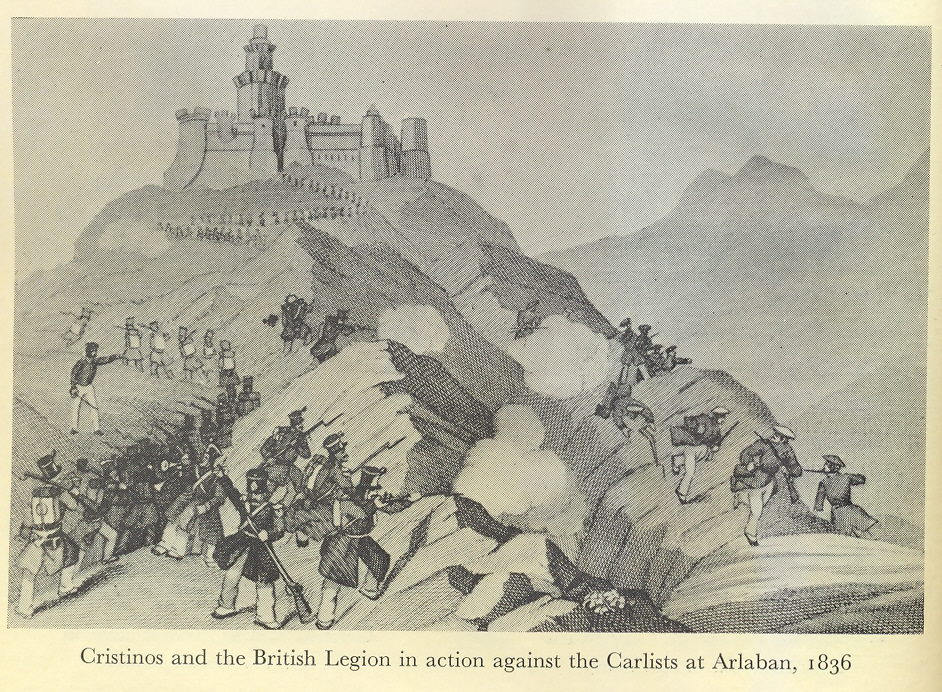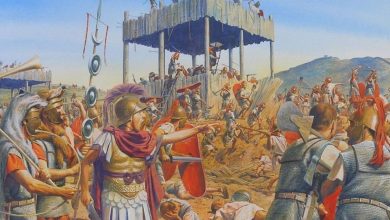The Battle of Zubiri (2nd) – A Defining Moment in the First Carlist War
The Battle of Zubiri (2nd), fought in 1836, stands as a significant yet often underappreciated episode in the tumultuous years of the First Carlist War. Located in the rugged terrain of Navarre, Spain, Zubiri was a pivotal moment in the conflict between the Cristinos (liberal forces) and the Carlists (royalist forces), which shaped the future of Spain during the 19th century. Though the battle was relatively small in terms of the number of soldiers involved, its consequences were far-reaching, influencing the political landscape of Spain and the course of the war.
Background of the First Carlist War
The First Carlist War (1833-1839) was one of the many civil wars that erupted in Spain during the 19th century, primarily a struggle for succession after the death of King Ferdinand VII. The central issue was whether Isabel II, the young daughter of Ferdinand VII, or Carlos María Isidro de Borbón, the king’s brother, should ascend the throne. The liberals, or Cristinos, supported Isabel II, while the traditionalist Carlists backed Carlos. This conflict was not just about dynastic succession but also represented the ideological divide between liberal constitutionalism and traditionalist absolutism.
The war saw a series of regional uprisings, battles, and sieges across Spain, particularly in the northern regions, where the Carlists had significant support. Navarre, in particular, became one of the key battlegrounds in the conflict due to its strong Carlist sympathies, making the region the site of several decisive clashes between the two sides.
The Battle of Zubiri (2nd)
The Battle of Zubiri (2nd) took place in 1836, during a phase of the war when the Carlists were attempting to consolidate their power in Navarre, while the Cristinos were intent on weakening the Carlist forces and securing Isabel II’s position on the throne. The exact details of the battle are sparse, as much of the historical documentation from the time was lost or never fully captured. However, we know that Zubiri, a small town in the foothills of the Pyrenees, became a significant site of conflict in this year.
In the battle, the Cristinos, with support from various regional forces, confronted the Carlist forces, who were entrenched in the area. The clash was fierce, with both sides fully committed to the cause. The Cristinos, under the command of generals and commanders including Bernelle, were determined to push back the Carlist insurgents who had already seen a series of successes across northern Spain.
The Carlists, led by local commanders, were determined to defend the strategic town, recognizing its importance as a key stronghold in their attempts to gain control of Navarre. Among the Carlist forces were contingents from the towns of Larrasoan, Tirapegui, Pamplona, and others, each having their own motivations for fighting in the conflict. These forces were largely composed of local peasants, militia, and a mix of trained soldiers loyal to Carlos, often bolstered by the fervent traditionalist sentiments of the region.
The Outcome
The battle, though a relatively small skirmish in the broader scope of the war, resulted in a victory for the Cristinos, marking a crucial turning point in the struggle for control of Navarre and the broader First Carlist War. The victory at Zubiri (2nd) weakened the Carlist forces in the region, forcing them to retreat and giving the Cristinos much-needed momentum in their efforts to defend Isabel II’s claim to the throne.
The Carlists, although defeated, did not give up their fight. The war would continue for several more years, with numerous other battles and skirmishes, but the Cristino victory at Zubiri marked a moment of optimism for the liberal forces. The battle demonstrated the military prowess and resilience of the Cristinos, particularly the leadership of figures like Bernelle, who would go on to play key roles in the eventual defeat of the Carlists.
The Significance of Zubiri (2nd)
While the Battle of Zubiri (2nd) may not have been as large-scale or as famous as some of the other battles of the First Carlist War, it still held significant importance in the broader context of the conflict. It showcased the strategic importance of Navarre to both sides and the bitter, localized nature of the conflict. The battle also illustrated the growing determination of the Cristinos to preserve the Spanish constitutional order, even as the Carlists remained a formidable force in the rural regions of Spain.
Furthermore, the battle reinforced the divide between the liberal and traditionalist factions in Spain, a divide that would continue to shape the country’s political future for decades. The Carlist Wars would not only determine the fate of Isabel II’s reign but would also lay the groundwork for the ideological battles that defined Spain during the 19th century.
Conclusion
The Battle of Zubiri (2nd) in 1836, while relatively small in terms of military significance, was a crucial moment in the larger narrative of the First Carlist War. It represented a decisive victory for the Cristinos and a major setback for the Carlists, who had hoped to gain control of Navarre. As part of the broader conflict that would shape Spain’s future, the battle symbolized the ongoing struggle between competing ideologies, with the fate of the Spanish monarchy and the constitutional order hanging in the balance. Despite the relative obscurity of this particular engagement, the Battle of Zubiri remains a critical event in understanding the First Carlist War and its enduring impact on the course of Spanish history.
References
- The First Carlist War: A Military History by Michael Alpert
- Carlist Spain: The Rise and Fall of the Carlist Movement by Peter C. C. McLachlan
- War and Society in Spain: 1808-1939 by Richard A. Houghton




